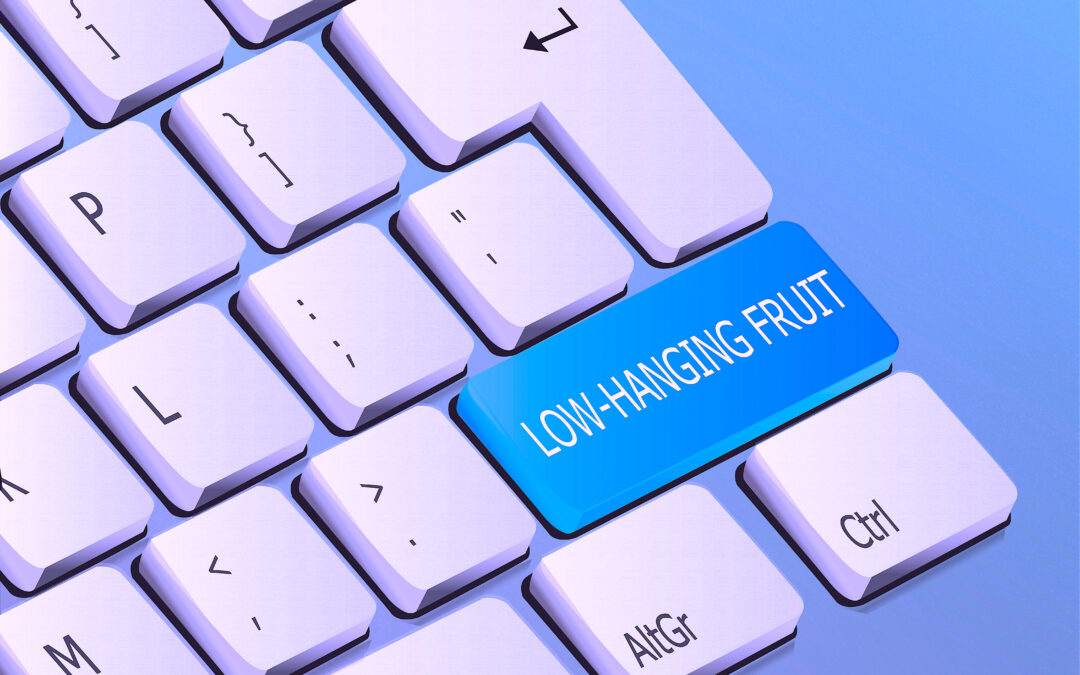Recently, while conducting an on-line lubrication-training workshop, I received a question that I had never before been asked. Seeming at first, to be self-explanatory, it highlighted an over-used analogy with no direct parallel in maintenance terms and no distinct constraints. The question: “How would you define ‘low-hanging fruit’?”
MY ANSWER
I could have, of course, answered flippantly, by saying low-hanging fruit reflects instant opportunities to save money for little cost outlay. This type of explanation might have sufficed with a management or financial audience, but I was speaking to a battle-hardened Maintenance and Lubrication group that needed (and deserved) a contextual definition. So, I talked about some of my consulting projects in which major problems, not initially recognized as such, resulted in huge savings for little cost to the organization.
I began with the story of a casting operation, where 8-month-old machining centers were consuming hundreds of gallons of hydraulic oil every week. To resolve this environmentally hazardous leakage problem, each machining center had recently been “updated” with large containment systems, i.e., “catch- pans.”
Investigation into the site’s preventive maintenance (PM) job tasks revealed that the approach revolved around ensuring all hydraulic-oil-tank fluid levels were checked and “topped up” daily. Furthermore, all oil-catch pans were vacuumed out daily by one of the plant’s lubrication specialists. The newly contaminated collected oil would then be regularly discharged into a central waste tank and professionally removed from the site on a weekly basis. It seemed that the abnormal had actually become normal.
When they were questioned about the frequency of daily PMs, the maintainers asserted that, in light of the system’s design, their approach was indeed acceptable. Some even thought the equipment was designed to leak, albeit wastefully, to ensure a constant flow of fresh lubricant through the system.
Further investigation revealed that none of the high-tech electronically monitored hydraulic filters were connected to the machine interfaces. Since the filters were operating in full bypass mode, no alarms were sounded. Additionally, the PM to change the oil and filter on a quarterly basis had never been acted on, as it was felt the daily PMs had rendered those activities redundant. Thus, dirty filters went unrecognized, allowing contaminated oil to do its worst. Once again, the abnormal had become normal.
The Maintenance group had clearly adopted a symptom-based approach. At this point the hydraulics were set to fail and create major productivity loss at any time. But, as long as nobody questioned the excessive lubricant costs or fees for disposal of used oils, the self-destructive, symptom-based approach prevailed.
Focusing on the situation in a subsequent roundtable discussion, the Maintenance group came to realize that leaks were NOT part of the machine design after all. Rather, the leaks were caused by a combination of poor housekeeping, missing breather caps on reservoirs, dirty filters, and dirty fluid-transfer equipment. Those factors, in turn, led to continued internal contamination of the hydraulic systems, which induced and promoted rapid component wear.
Discussing this real-world example and two more where abnormal practice had become normal, I defined low-hanging fruit as “a state or situation, where normalized-abnormality is practiced.”
THE FINAL WORD
It’s often been said that “we can’t see the forest for the trees.” And It’s so true. Recognizing “normalized” abnormal behavior requires us to take a step back, scrutinize our processes and behaviors with a critical, but non-criticizing eye, and ask, “Does it make sense? Does it add value?” Only then will the term “low-hanging fruit” have real meaning in plants and facilities.TRR
ABOUT THE AUTHOR
Ken Bannister has 40+ years of experience in the RAM industry. For the past 30, he’s been a Managing Partner and Principal Asset Management Consultant with Engtech industries Inc., where he has specialized in helping clients implement best-practice asset-management programs worldwide. A founding member and past director of the Plant Engineering and Maintenance Association of Canada, he is the author of several books, including three on lubrication, one on predictive maintenance, and one on energy reduction strategies, and is currently writing one on planning and scheduling. Contact him directly at 519-469-9173 or kbannister@theramreview.com.
Tags: reliability, availability, maintenance, RAM, lubricants, filtration, oil cleanliness, breathers, bearings



